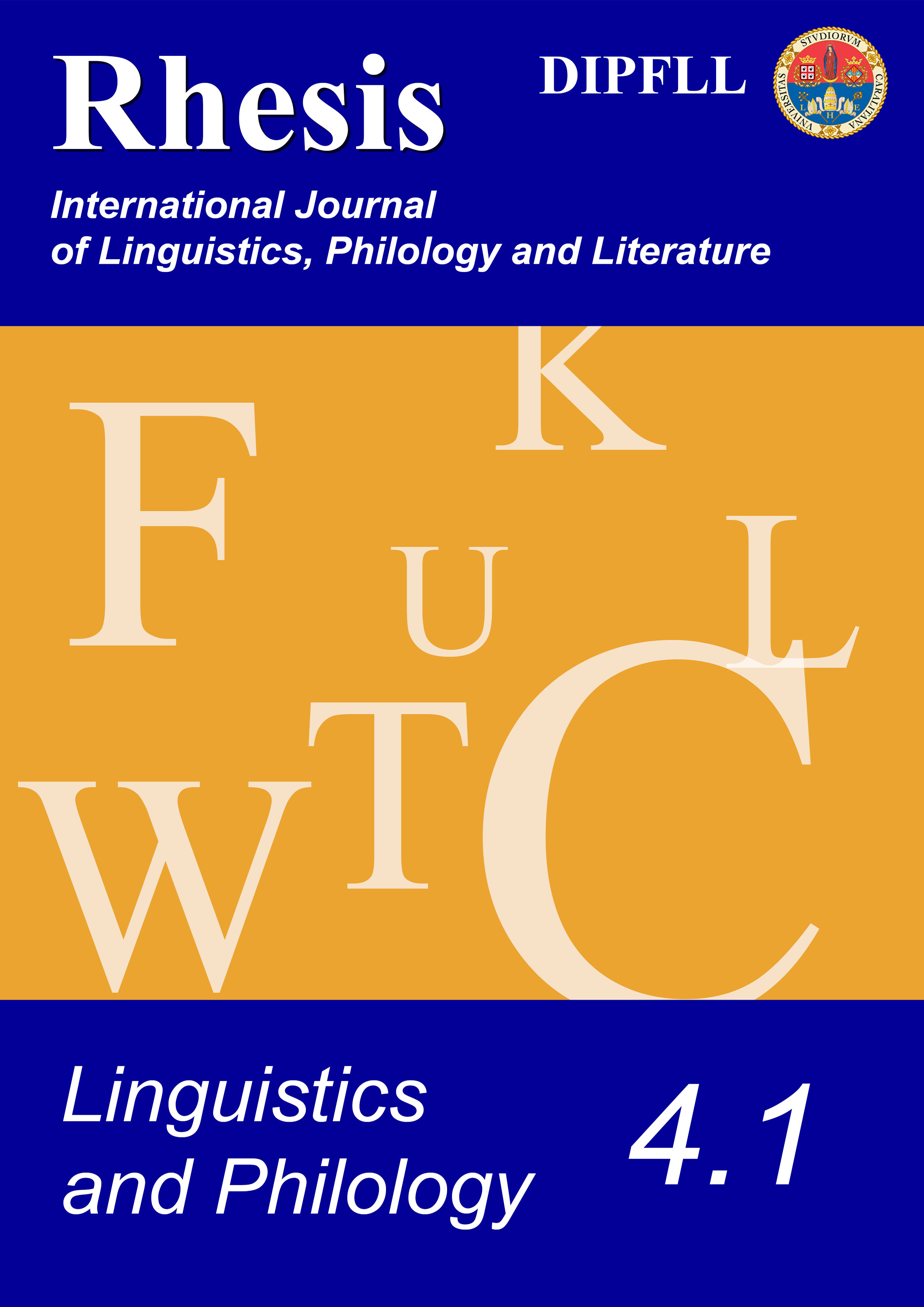Communicating Europe: a social semiotic approach
Abstract
The failure of the referenda in France and the Netherlands in May and June 2005 plunged the EU into its deepest and most serious crisis since its foundation. During the ‘period of reflection’ declared by the European Council in June 2005, EU institutions clearly recognized the need to understand this lack of democratic legitimacy in terms of communicative action, thus paving the way ‘to close the gap’ with citizens and face this sense of alienation felt from Brussels. In addition, the recent trend of globalization has had a great impact on a variety of different domains; the result being that the contemporary world has been fostering the formation of a corporate-model to increase profit-making opportunities. The paper sets out to investigate the diachronic changes of the rhetorical and pragmatic linguistic strategies from the point of view of «the key dimensions of social semiotics» (van Leeuwen 2005: 91), namely discourse, genre and style, and uncover displacement of «communicative» practices with «strategic action» (Habermas 1987: 333), which in turn entails a purely instrumental rationale. In particular, EU discourse pre- and post- the referendum fiasco is investigated in terms of how it constructs representations of the social world and the EU political and institutional process itself; how it contributes as a means of EU institutional process; and how it conveys a particular EU identity connected to particular values.
Downloads
References
BHATIA, Vijay K. 1993. Analysing Genre. London: Longman.
BOURDIEU, Pierre. 1998. “A reasoned utopia and economic fatalism”, in «new left review» 227: 25-30.
CALIENDO, Giuditta, PIGA, Antonio. Forthcoming. “Framing Identity through the Virtual Channels of EU Institutional Communication”. Issues of Identity in and Across Cultures. Conference proceedings, IUSM Roma 25-27 October 2007.
COMMISSION OF THE EUROPEAN COMMUNITIES 2005. Communication from the Commission to the Council, the European Parliament, the European Economic and Social Committee and the Committee of the Regions – The Commission’s contribution to the period of reflection and beyond: Plan-D for democracy, dialogue and debate. COM(2005) 494 final. Retrieved August 2007, from http://eur-lex.europa.eu/LexUriServ/site/en/com/2005/com2005_0494en01.pdf.
COOK, Guy. 1992. The Discourse of Advertising. London: Routledge.
FAIRCLOUGH, Norman 1989. Language and Power. London and New York: Longman.
FAIRCLOUGH, Norman 1992. Discourse and Social Change. Cambridge: Polity Press.
FAIRCLOUGH, Norman. 1995a. Media Discourse. London: Arnold.
FAIRCLOUGH, Norman. 1995b. Critical Discourse analysis. The critical study of language. London and New York: Longman.
FAIRCLOUGH, Norman. 2000. New Labour, New Language? New York: Routledge.
FAIRCLOUGH, Norman. 2003. Analysing Discourse. New York: Routledge.
FOUCAULT, Michael. 1977. The Archeology of Knowledge. London: Tavistock.
HABERMAS, Jürgen. 1987. Theory of Communicative Action. vol.1. London: Heinemann.
HALLIDAY, M. A. K. 1985. An Introduction to Functional Grammar. London: Edward Arnold.
HALLIDAY, Michael A. K. MATTHIESSEN, Christian M. I. M. 2004. An Introduction to Functional Grammar. London: Edward Arnold.
HERRMANN, Richard K., RISSE, Thomas. BREWER, Marilynn B. (eds.) 2004. Transnational identities: Becoming European in the EU. Lanham, Boulder, New York: Rowman and Littlefield Publisher.
HUNSTON, Susan. 2008. “Starting with the small words”, in «International Journal of Corpus Linguistics». 13(3): 271-295.
HYLAND, Ken. 1996. “Nurturing Hedges in ESP Curriculum”, in «System» 24 (4): 477-490.
KRESS, Gunther, VAN LEEUWEN, Theo. 1996. Reading Images. London and New York: Routledge.
KRZYŻANOWSKI, Michael, OBERHUBER, Florian. 2007. (Un)Doing Europe. Discourses and Practices of Negotiating the EU Constitution. Brussels: Peter Lang.
PALMER Frank Robert. 1990. Modality and the English Modals. London and New York: Longman.
PARROT, Martin. 2000. Grammar for English Language Teachers. Cambridge: Cambridge University Press.
PIGA, Antonio. 2011. “Hybridization and Change in the Discourse of the European Commission”. In SARANGI, Srikant, Vanda POLESE, Giuditta CALIENDO (eds.). Genre(s) on the move: Hybridization and Discourse Change in Specialized Communication. Napoli: Edizioni Scientifiche Italiane, 22-47.
PIGA, Antonio. 2013. Towards a New Communication Policy. Cagliari: Aipsa Edizioni.
SCOLLON, Ron, SCOLLON Suzanne Wong. 2000. Intercultural Communication. Oxford: Blackwell Publishing.
SCOLLON, Ron. 2008. Analyzing Public Discourse. London and New York: Routledge.
RUTHERFORD, Paul. 2004. Endless Propaganda. The Advertising of Public Goods. Toronto: University of Toronto.
VAN LEEUWEN, Theo. 2005. Introducing Social Semiotics. New York: Routledge.



